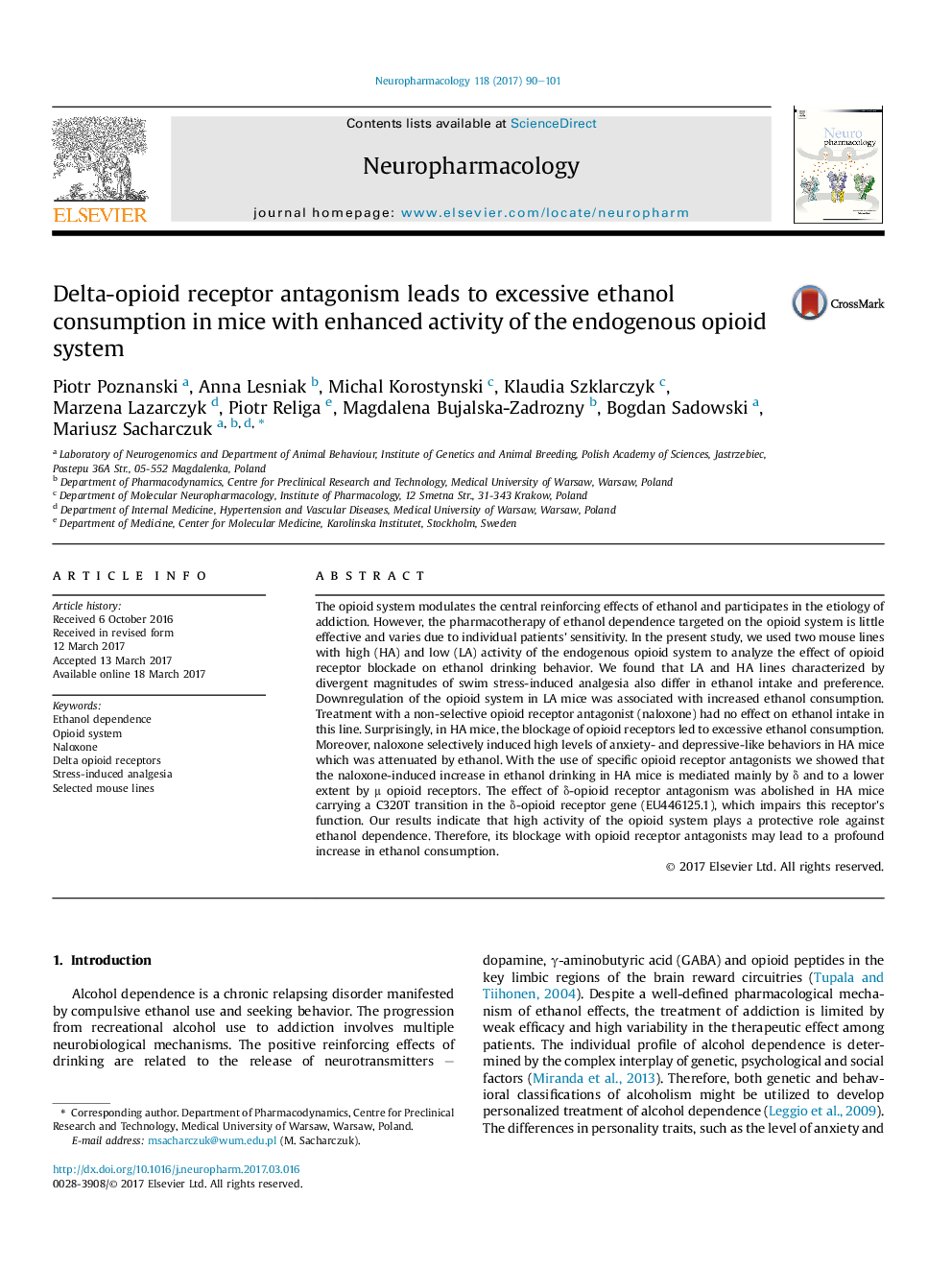| کد مقاله | کد نشریه | سال انتشار | مقاله انگلیسی | نسخه تمام متن |
|---|---|---|---|---|
| 5549018 | 1556599 | 2017 | 12 صفحه PDF | دانلود رایگان |
- Upregulated opioid system activity increases ethanol intake and preference.
- Naloxone augments ethanol consumption under high opioid system activity.
- Blockage of the δ - rather than μ - opioid receptors predisposes to ethanol abuse.
- Ethanol reverses naloxone-induced anxiety- and depressive-like behavior in HA mice.
The opioid system modulates the central reinforcing effects of ethanol and participates in the etiology of addiction. However, the pharmacotherapy of ethanol dependence targeted on the opioid system is little effective and varies due to individual patients' sensitivity. In the present study, we used two mouse lines with high (HA) and low (LA) activity of the endogenous opioid system to analyze the effect of opioid receptor blockade on ethanol drinking behavior. We found that LA and HA lines characterized by divergent magnitudes of swim stress-induced analgesia also differ in ethanol intake and preference. Downregulation of the opioid system in LA mice was associated with increased ethanol consumption. Treatment with a non-selective opioid receptor antagonist (naloxone) had no effect on ethanol intake in this line. Surprisingly, in HA mice, the blockage of opioid receptors led to excessive ethanol consumption. Moreover, naloxone selectively induced high levels of anxiety- and depressive-like behaviors in HA mice which was attenuated by ethanol. With the use of specific opioid receptor antagonists we showed that the naloxone-induced increase in ethanol drinking in HA mice is mediated mainly by δ and to a lower extent by μ opioid receptors. The effect of δ-opioid receptor antagonism was abolished in HA mice carrying a C320T transition in the δ-opioid receptor gene (EU446125.1), which impairs this receptor's function. Our results indicate that high activity of the opioid system plays a protective role against ethanol dependence. Therefore, its blockage with opioid receptor antagonists may lead to a profound increase in ethanol consumption.
Journal: Neuropharmacology - Volume 118, 15 May 2017, Pages 90-101
